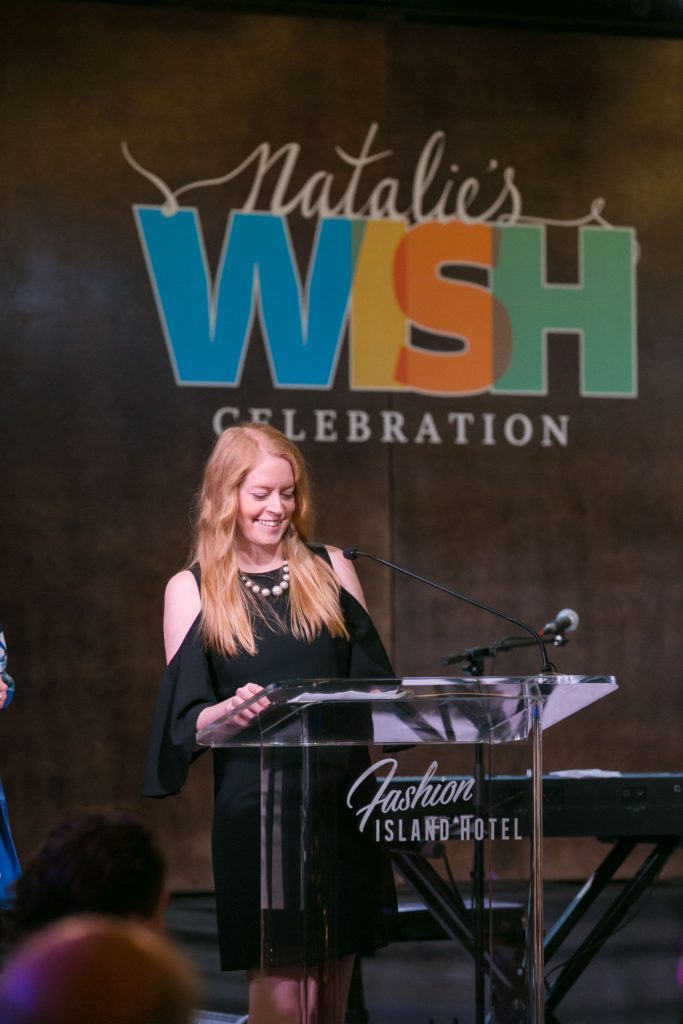
Mission Statement
The Cystinosis Research Foundation’s mission is to support bench, clinical and translational research to find better treatments and a cure for cystinosis.
Research
The Cystinosis Research Foundation is dedicated to finding better treatments to improve the quality of life for those with cystinosis and to ultimately find a cure for this devastating disease.
CRF is committed to finding a cure through an aggressively funded research agenda. CRF issues research grants bi-annually to accelerate the research process and to ensure that there is never a gap in funding new cutting-edge research ideas. We are focused and determined to improve the quality of life for our patients and to find better treatments, including a cure, for our adults and children living with cystinosis.
Education
The Cystinosis Research Foundation is dedicated to educating the cystinosis community, the public and the medical community about cystinosis to ensure early diagnosis and immediate and proper treatment.
The Story of Natalie's Wish
In February 2003, on the eve of Natalie’s 12th birthday, Natalie made a birthday wish that no child should ever have to make.
After leaving a doctor’s appointment, we stopped to have lunch at a local restaurant. While discussing plans for her birthday party, I asked Natalie if she had thought about making a birthday wish. Natalie said she did not have a wish because she wasn’t sure what type of wish she should make. She asked if her wish had to be a wish that would come true. Next, Natalie pulled a napkin from the holder on the table and scribbled something on the napkin with the crayon she was using. Then, she folded the napkin and put it in her pocket.
We finished lunch and as we were walking to the car, I asked to see the napkin. At first hesitant, she reached into her pocket and handed me the napkin. I unfolded it and in purple crayon she had scribbled, “to have my disease go away forever.” With tears in my eyes and holding her wish in my hand Natalie whispered, “It’s okay Mom – I’ll be alright.”
Natalie’s compelling wish was the catalyst for us to act. Those seven words provided the impetus for us to create the Cystinosis Research Foundation. We knew at that moment that we needed to make every effort to make Natalie’s wish – and the wish of others with cystinosis – become a reality. That year we established the Cystinosis Research Foundation with the express mission to support cystinosis research. Since that time, our extraordinary community of friends and family has helped make Natalie’s wish move closer to reality. The CRF is committed to find better treatments for cystinosis and to find a cure for this devastating disease.
Nancy and Jeff Stack

I am beyond thankful to my parents, doctors, researchers and the entire cystinosis community for dedicating their time, funds and efforts to finding a cure for cystinosis. Words cannot express what it means to me to have this community by my side fighting for a life free of this disease. I have hope that I will live longer now, and, because of that, I am extremely grateful to Dr. Cherqui and this community for what they have done for not only me, but all the other children and adults with cystinosis. Thank you for never giving up and making my wish come true.”
– Natalie Stack
Research Progress and Advancements
The Cystinosis Research Foundation supports bench, clinical, and translational research to speed breakthroughs and find better treatments and a cure for people with cystinosis. Funding quality research studies at world-renowned institutions is a priority and is a continuous process. The CRF announces global calls for research applications biannually, in the spring and fall of each year. All applications are carefully reviewed and evaluated by the CRF Scientific Review Board (SRB). After review, the SRB recommends which studies are worthy of funding. To date, the CRF has approved and funded 256 multi-year research grants in 13 countries. An important impact of that research is the number of research articles that have been published by CRF-funded researchers which now number 116 publications in prestigious journals.
We have reached milestones and take pride in the advancements we have made. Significant CRF accomplishments include:
In 2006, the CRF established the first Cystinosis Research Fellowship Program designed to support scientists and new researchers who have an interest in cystinosis research. The program has yielded many new researchers committed to the field of cystinosis.
CRF established the first international biennial symposium for cystinosis researchers and scientists. The symposiums have created a synergistic and collaborative scientific community.
FDA approval of a new treatment. The CRF funded every bench study and early clinical trials at the University of California, San Diego (UCSD) which resulted in the development of a slow-release form of cysteamine. On April 30, 2013 the FDA approved the new drug Procysbi®.
CRF grants have led to numberous clinical trials in areas of important research including novel therapeutic treatments, kidney disease, neurological disease and muscle wasting.
Advancing Toward a Cure: Stem Cell and Gene Therapy In November 2018, the U.S. Food and Drug Administration approved the first-ever stem cell and gene therapy clinical trial for cystinosis, developed by Stéphanie Cherqui, PhD, at the University of California, San Diego. This landmark trial involved six adult patients, with transplants taking place between October 2019 and October 2022. We are pleased to report that all six patients continue to do well following their treatment. The Cystinosis Research Foundation (CRF) was the first and sole funder of Dr. Cherqui’s research, providing crucial seed funding that later leveraged multi-million-dollar support from additional agencies. In May 2023, Novartis acquired the cystinosis stem cell program, signaling strong pharmaceutical commitment to advancing this groundbreaking therapy. In April 2025, Novartis announced the launch of the next phase of the clinical trial, now open to pediatric participants aged 2–5 years. This new phase will evaluate the safety, tolerability, and efficacy of the therapy in young children. Visit Current-Clinical-Trials/ on the website for more information. This expansion represents a significant step forward in bringing life-changing treatment to the broader cystinosis community—and closer to our shared goal of a cure.
